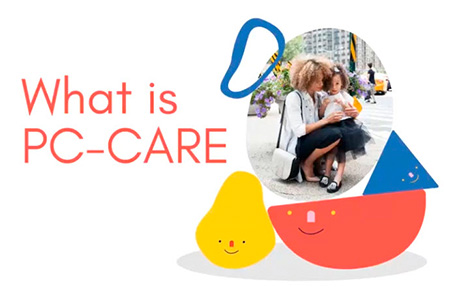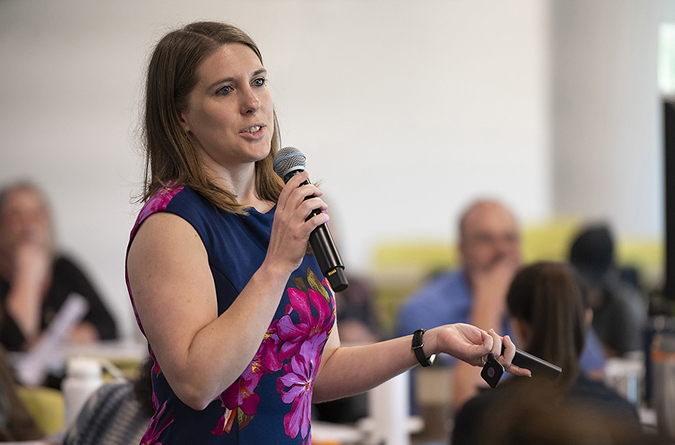CAARE Diagnostic and Treatment Center
PC-CARE: Caregivers and children together


About PC-CARE
What is PC-CARE?
Parent-Child Care (PC-CARE) is a 6 session dyadic treatment program for families that are interested in improving caregiver-child relationships and are willing to learn new child behavior management strategies. It serves families with children ages 1 to 10 years. A wide range of caregivers can participate, including biological parents, foster and kin caregivers, and adoptive caregivers. PC-CARE can be provided by mental health clinicians as a mental health intervention, and paraprofessionals as a prevention service.
What does PC-CARE look like?
Each week the caregiver and child attend a 1 hour session for a total of 7 weeks (including 1 pre-treatment assessment and behavior observation and 6 weeks of dyadic and coaching sessions). During each hour long session the provider checks in with the family, uses a brief child behavior screener to address behaviors in the past week, does a 10 minute didactic of new skills, and then coaches the caregiver for 30 minutes live in the moment to use the new skills during play with the child. At the end of the session the provider assigns “Daily CARE” to the caregiver to use the skills during play with the child for 5 minutes every day.
Who is PC-CARE for?
PC-CARE is for any caregiver that is motivated to improve their relationship with their child and to learn new caregiving skills. Caregivers should have custody of the child, or have at least regular contact (e.g., foster, adoptive, relative, reunited parent that has at least supervised visits). Caregivers need to be willing to spend five minutes in play with their child on a daily basis. This program is for children between the ages of 1 and 10 years who may have experienced a traumatic event, may be adjusting to a new home, or may be disruptive and defiant. PC-CARE has been adapted into a variety of protocols for a wide range of populations and needs: Spanish-speaking families, toddlers, older children, children with sexual behavior problems, children with ASD and IDD, and children with feeding problems.
Contact information
Abby Flower
Phone: 916-732-8971
Email: aflower@health.ucdavis.edu

Life-changing results
Young foster care children showed fewer behavior problems after participating in PC-CARE, a seven-week intervention program pioneered at the UC Davis CAARE Diagnostic and Treatment Center, a nationally recognized program for the evaluation and treatment of child maltreatment.
Supervised and co-developed by psychologist Brandi Hawk, PC-CARE has showcased child improvement in behaviors, trauma symptoms, self-regulation, relationships, and placement stability.
Additional resources
- NCTSN has listed PC-CARE as a trauma intervention on their website
- The CEBC is funded by the California Department of Social Services (CDSS) Office of Child Abuse Prevention and is one of their targeted efforts to improve the lives of children and families served within child welfare system. Read about PC-CARE on the CEBC website.

